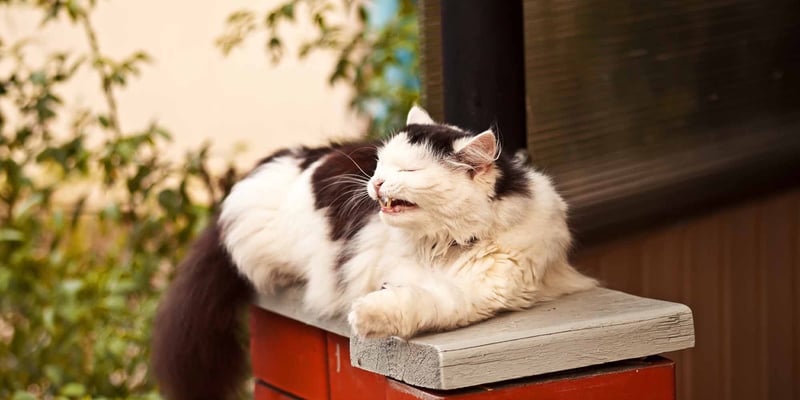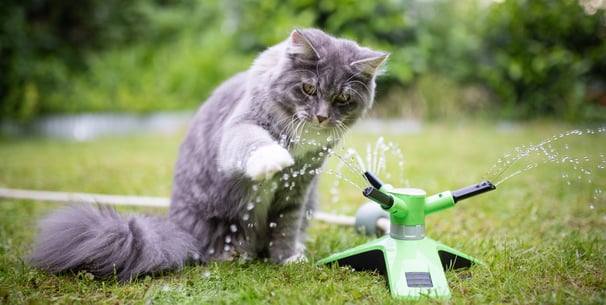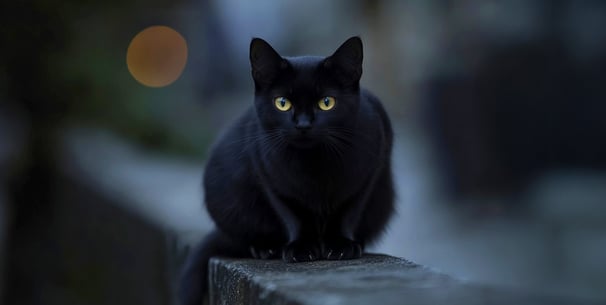Summary
Index
Introduction
Although a cat sneezing can be irresistibly cute, how do you know when it’s a cause for concern? Cats sneeze for the same reasons as us; when we have an irritant in the nasal passage (though we’ll get into that in more detail later on). As we all know, sneezes are involuntary and it’s not uncommon for cats and humans alike to have a so-called sneezing fit.
However, cats shouldn’t sneeze or have sneezing fits regularly for multiple days in a row. We understand that if your cat suddenly starts sneezing more than usual, it can be a worry.
To help you understand why your cat is sneezing and what it means, we’ve written this helpful guide. Below we’ll cover the following topics and questions:
Why do cats sneeze?
When should I worry about my cat sneezing?
Cat reverse sneezing
What to do when your cat keeps sneezing
Why do cats sneeze?



The respiratory tract is a large system made up of multiple structures. It begins in the nostrils, involves structures within the head, and continues in the neck ending in the lungs.
Continuous sneezing is often a sign of an upper respiratory infection (URIs) in cats. URIs are often referred to as cat flu and can be a viral infection such as feline calicivirus, a bacterial infection, or a fungal infection(though this is the least common type).
There are different types of URI but the most common is Feline Herpesvirus (FHV). It’s currently estimated that around 80% to 90% of cats are infected with FHV. This is because they were likely exposed to the virus as kittens and are then carriers of the disease into adulthood. In cats with excessive sneezing, URIs are usually the underlying issue.
Other symptoms of cat flu or upper respiratory symptoms include discharge from the eyes or nose, coughing and swallowing, lethargy, fever, dehydration, and decreased appetite.
Cat flu is like a common cold with similar symptoms as mentioned above, and can cause chronic rhinitis which could then lead to recurring bacterial infections.
Infections aren’t the only reason why cats sneeze. Another reason why cats sneeze is due to allergies. In cats, allergic reactions usually show through skin irritation such as hair loss and lesions as opposed to sneezing, however, sneezing isn’t an unknown symptom.
Cats, especially those with asthma, can suffer from allergic rhinitis meaning they sneeze and cough when exposed to pollen or indoor allergens such as mould and dust.
Sneezing can also be caused by external irritants such as cooking spices, essential oils, or strong household cleaners such as bleach. Therefore, it’s recommended to remove such items from your home in favour of less irritating products.
When should I worry about my cat sneezing?



The occasional sneeze every now and then isn't typically something to worry about. However, your cat may be struggling with a serious health issue if they have more frequent sneezing. Noticing the symptoms of a health issue can stop it from progressing any further.
The most common signs and symptoms of a serious issue or underlying condition include:
Nasal discharge or crust around the nose
Conjunctivitis
Squinting
Sinus congestion
Coughing
Excessive sneezing fits
Loss of appetite and weight loss
These signs point to an upper respiratory infection (URI) which, as we’ve touched upon, is very contagious and a common illness amongst cats. During a URI, the mucus membranes in the nose and throat can lead to inflammation and often drainage causing a runny nose and sneezing.
Excessive sneezing causes the bacteria or virus to spread to other cats. Though URIs are not usually considered a severe illness, they can lead to other conditions such as depression and anorexia which can be fatal in cats of any age.
If you’re worried about your cat, we recommend speaking to a vet immediately. All Waggel members get exclusive free access to 24/7 online vet service, Joii. Here you can book online consultations with a veterinarian at a time that suits you best.
Cat reverse sneezing
Reverse sneezing can be scary to witness but it is just a cat’s way of clearing irritants from the back of the throat or the nasopharynx. We humans can’t reverse sneeze so witnessing it for the first time can initiate a feeling of panic!
When a cat reverse sneezes, they’ll probably close their eyes and extend their neck and body upwards making a snorting, and sometimes choking, sound as if they are struggling to catch their breath. Of course, if your cat makes any worrying sound it’s important to make sure it is a reverse sneeze and not something more serious.
Reverse sneezing only lasts a few seconds, so if your cat continues to hack or make unusual noises, it’s important to check that they’re not struggling to breathe. Some owners gently rub their cat's back or chest to soothe them during a reverse sneeze.
Cats reverse sneeze when their nasopharynx and oropharynx are irritated by things such as pollen, blades of grass, foreign debris, and seeds. The most common treatment method for reverse sneezing recurrence is antihistamines to rule out allergies.
If allergies are ruled out, an oral exam will take place to look for a foreign body. Though it can look worrying, reverse sneezing is usually nothing to worry about and is often accompanied by excitement and zoomies.
If your cat starts to reverse sneeze more than usual, this could be a sign of something more serious such as dental disease or ear mites. In cases like this, we recommend seeking immediate veterinary attention.
What to do when your cat keeps sneezing



If your cat won’t stop sneezing, what can be done to help them at home? Fortunately, quite a lot! We’ve compiled a list of our home remedies to help your cat:
Use an air purifier to clean the air of irritants and nasties
Avoid powerful cleaning products and chemical household cleaners - even scented laundry detergents and perfume can cause damage and excessive sneezing
Get rid of any air fresheners - whilst you think they’re doing a good job making your home smell fresh they’re actually causing more harm to your cat
If they’re not eating their food, warm it up - giving a cat potent, yummy-smelling food can help those with a loss of appetite get their appetite back and fight off infection quicker
Ensure litter boxes are kept clean and are placed away from their food and water area.Some cat litters are quite dusty and can irritate the cat's nasal cavity.
If none of the above helps to stop sneezing, or the sneezing gets worse, we advise you to seek veterinary care immediately.
The above steps are also preventative measures and will help to avoid any sneezing episodes in the future, keeping your cat as healthy as possible.
Conclusion
If your cat sneezes occasionally, it's really not something to worry about. Frequent sneezing however, can be a common symptom of an inflammatory condition in cats, but it can also be a sign of respiratory conditions or infectious diseases, such as the feline herpes virus or another respiratory virus. These conditions can cause serious internal damage if left untreated. Therefore, it's important to take your cat to a veterinary visit as soon as you notice persistent sneezing or excessive nasal discharge.
Other mild symptoms, such as a stuffy nose or occasional sneezing fit, can also be a sign of nasal infection,allergies, or dental disease. To prevent unnecessary sneezing and protect your cat's overall health, it's recommended to remove strong chemicals, cigarette smoke, and any noxious smells from your home.
In addition to veterinary visits, your cat's respiratory health can also benefit from nasal lavage, which can help keep the nasal passages moist and flush out any irritants. Your vet may also recommend antiviral medications or a variety of treatments based on your cat's specific condition.
If you're a Waggel member and you notice eye discharge or have any concerns about your cat's immune system, speak to Joii's team, who are available night and day. They can provide advice and recommend over-the-counter medication that you can purchase directly through their app, making it easy to address your cat's respiratory health.
If you’re interested in reading more about cat health, we’ve got you covered. We’ve got articles exploring why cats knead (that’s when they knead on you to make imaginary little loaves), pregnancy information, and super cute haircuts.
Want more like this?
Get updates from us with helpful info, advice, answers to frequently asked questions and much more.
Get your quote
Along with our excellent coverage, we offer access to a 24/7 online vet to answer all your sticky questions.








